Members of
the European Parliament granted an audience with the King of the Danube River
A
conference organised by the European Parliament Recreational Fisheries Forum on
the 19th April 2016 shed light upon the worrying state of the Danube basin by
examining the case of one of its endemic and iconic species, the Danube salmon.
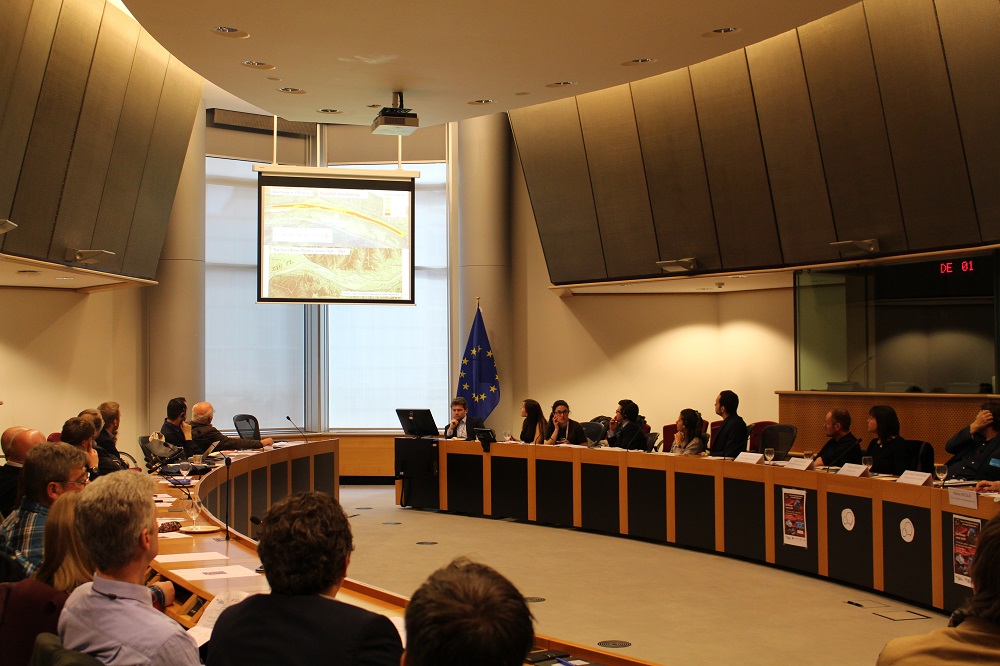
A panel of
experts coming from all across Europe illustrated a very critical description
of the state of the Danube and its tributaries all along the river basin, which
encompass Germany, Austria, Slovenia, the Balkans and Romania. Throughout the
basin, human activities such as agriculture, construction, navigation and most
significantly hydroelectricity generation, have all seriously impacted the
rivers.
The event,
chaired by the Romanian MEP and President of the Forum Norica Nicolai, focused
on the case of the Danube salmon describing it as both a barometer for these
rivers’ health, and a symbol for all scientists and nature lovers. By
definition the Danube salmon is a European fish, as its natural territory
spreads over twelve countries - from the Slovenian Alps to the Romanian Danube
delta.
“The Danube salmon serves both as an indicator
and a symbol for intact river systems [….]. Experience shows that large or
dense hydropower development is incompatible with the conservation of Danube
salmon” – Dr. Steven Weiss, University of Graz, Austria
The
question of the impact of hydropower dams on the Danube salmon’s habitat was
raised several times whilst discussing its problems. The anglers of the EU are
working on several restoration projects along the Danube. They are also asking
for the protection of the remaining intact natural habitats, such as the
Slovenian rivers, where the fish spawn very successfully, as demonstrated by
Dr. Dasa Zabric from Fisheries Research Institute of Slovenia.
Mrs. Irene
Lucius, the director for Danube Basin Conservation at the WWF, presented some
of the programs and activities underway for the protection of the Danube in
Austria. Through multi-stakeholder dialogue and the development of coordinated
management plans in the framework of the International Commission for the
Protection of the Danube River (ICPDR), good results can be achieved. The very
successful example of the revitalisation of the tributaries of the Danube River
in Lower Austria is a clear example of this.
The
question of habitat connectivity was also touched upon - the Danube salmon
being a great migratory species which is able to swim up to 100 km in order to
return to its birthplace. The very survival of this species depends upon its
ability to migrate. It is for this reason
that this conference took place in the framework of the 2016 World Fish
Migration Day.
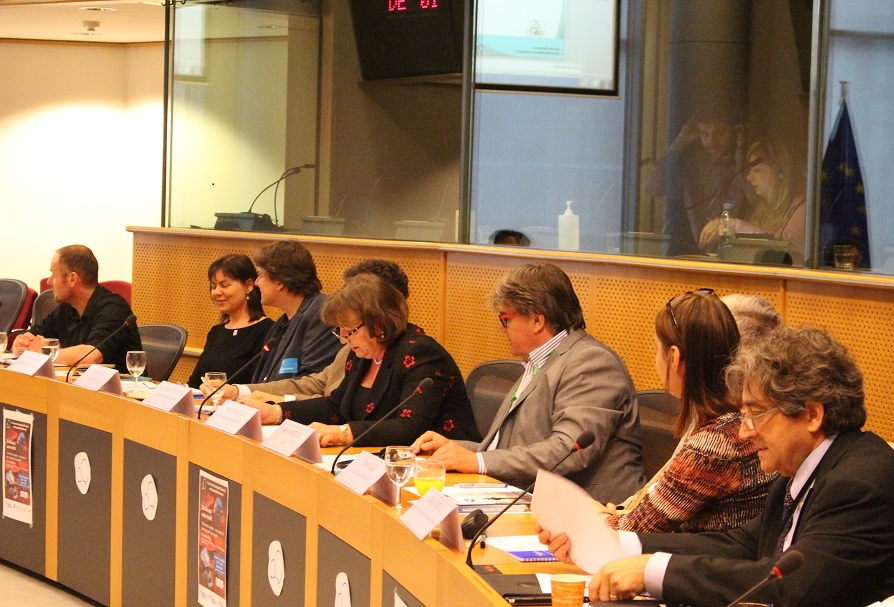
From left to right: H. Wanningen (WFMD), I. Lucius (WWF), S. Weiss (Graz University), MEP N. Nicolai, MEP I. Jakovcic, D. Zabric (Fisheries Research Institute Slovenia) and MEP R. Serrao Santos.
“We don’t
need new rules but more political will”
MEPs and
participants concluded that a better implementation of both the existing Water
Framework Directive and the Habitats Directive rules was needed. “The birds are
much more protected than the fish, they even have their own EU Directive.
However, fish are just as important. They are an indicator of the water
quality”, said Mr. Fred Bloot, President of the EAA. Preserving key habitats
and mitigating the impact of hydropower plants will be decisive for the
survival of the King of the Danube.
Beside the Danube salmon, the EAA and the EFTTA are engaged for the protection of many other vulnerable fish species such as the European eel, sea bass, atlantic salmon, Baltic salmon and the Danube Trout.
Documents of the meeting
Programme
Press release
Report
Presentations
The Danube salmon: an overview of their biology, status and current threats, with emphasis on the Balkan region - Dr. Steven Weiss, University of Graz
Population and habitat conservation of the Danube salmon in The Sava River - Dr. Daša Zabric, Fisheries Research Institute of Slovenia
How the Huchen and other freshwater species can profit from integrated, participatory river basin management in the Danube basin - Irene Lucius, Conservation Director, WWF Danube-Carpathian Programme
Water Framework Directive: State of Play and recommendations in view of 2nd River Basin Management Plans - Juan Pablo Pertierra, European Commission, DG Environment – Water Unit
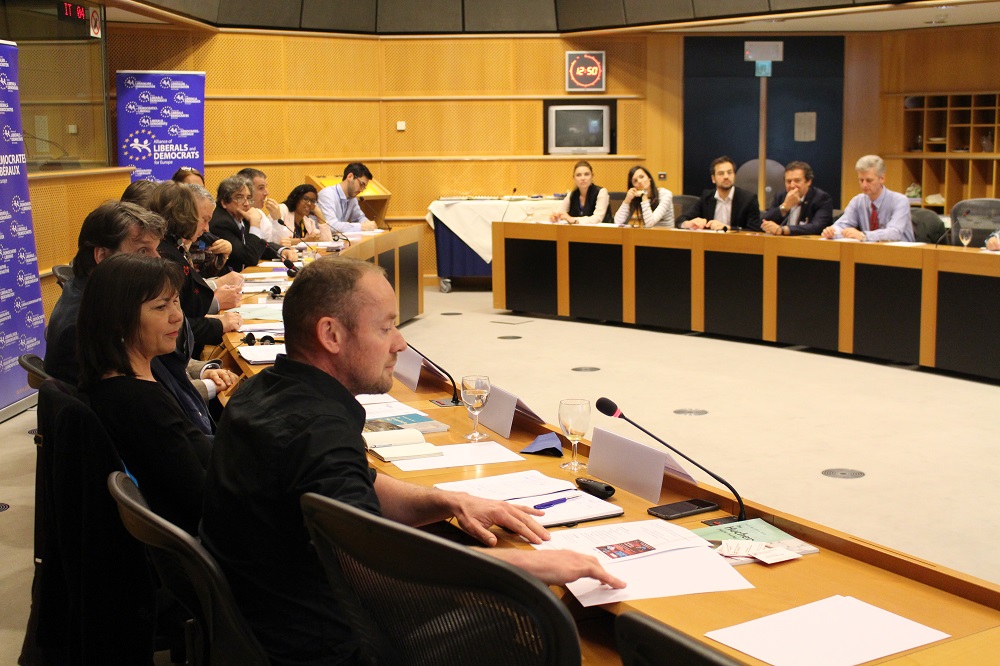
H. Wanningen (WFMD)
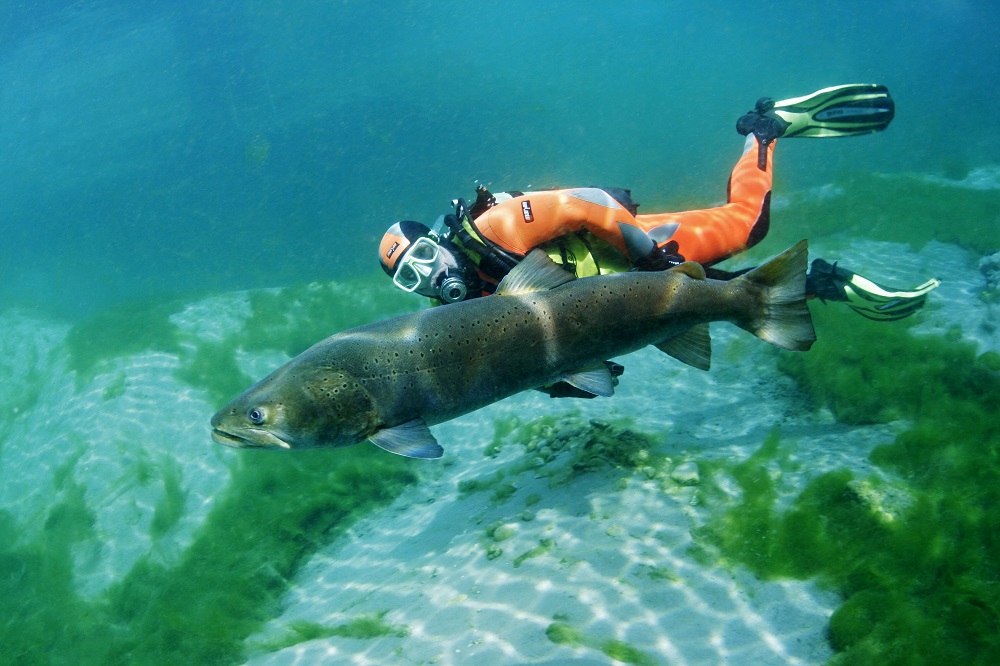
The Danube Salmon
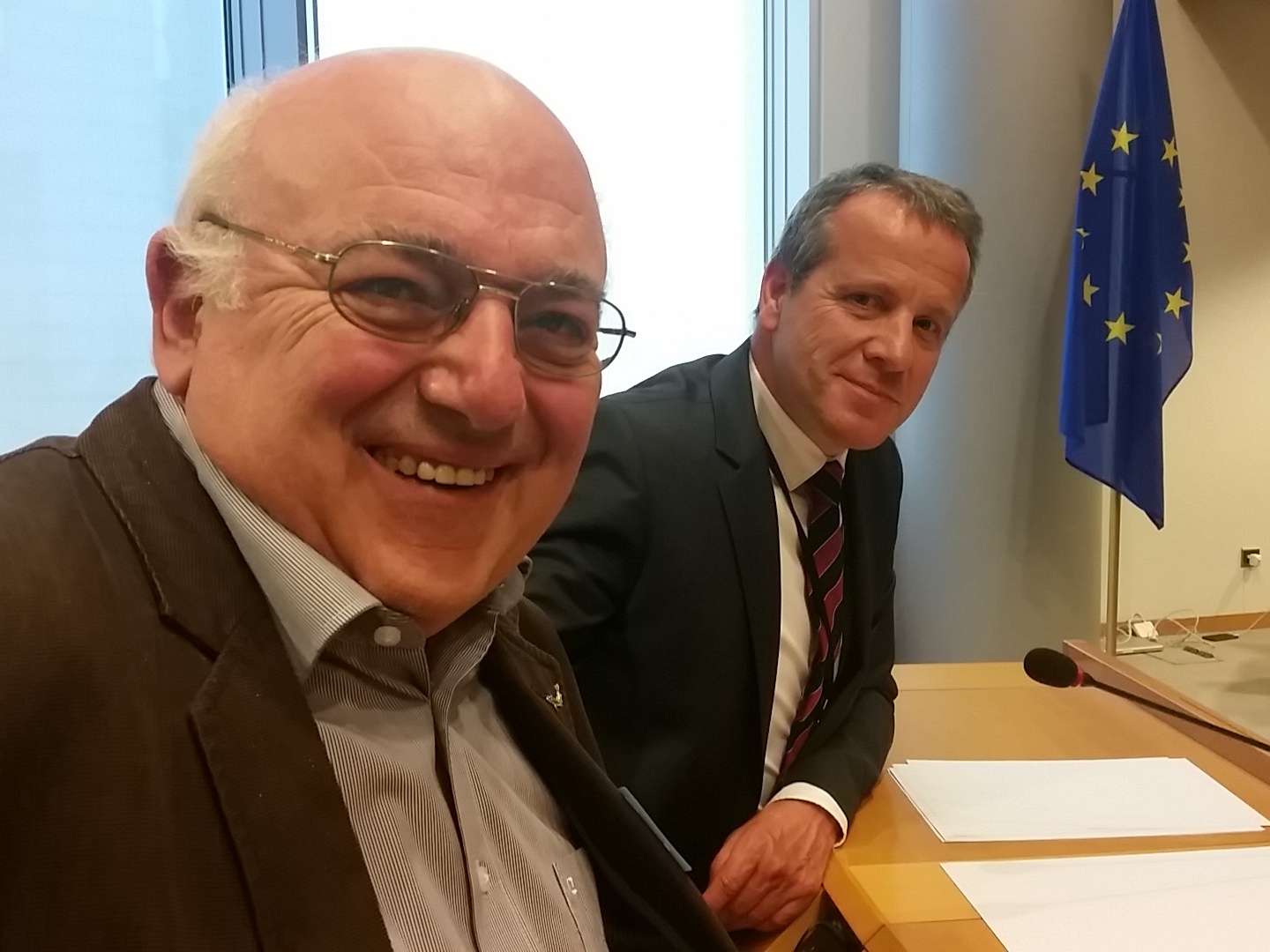
B. Jerse (Ribiska Zveza Slovenije - EAA Slovenia) and MEP I. Šoltes
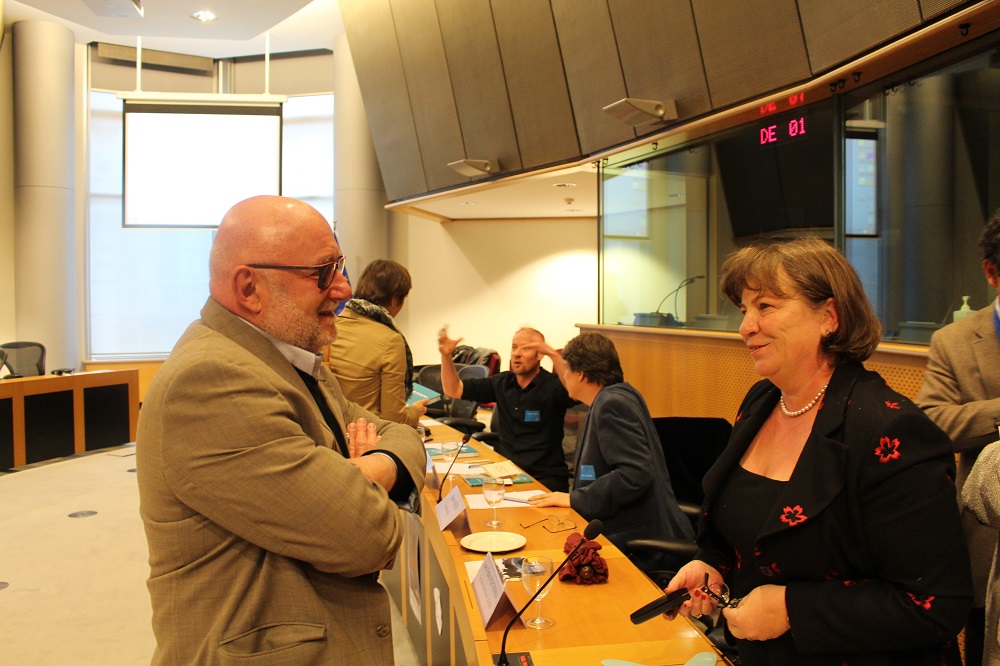
Jean Claude Bell (European Fishing Tackle Trade Association) and MEP N. Nicolai
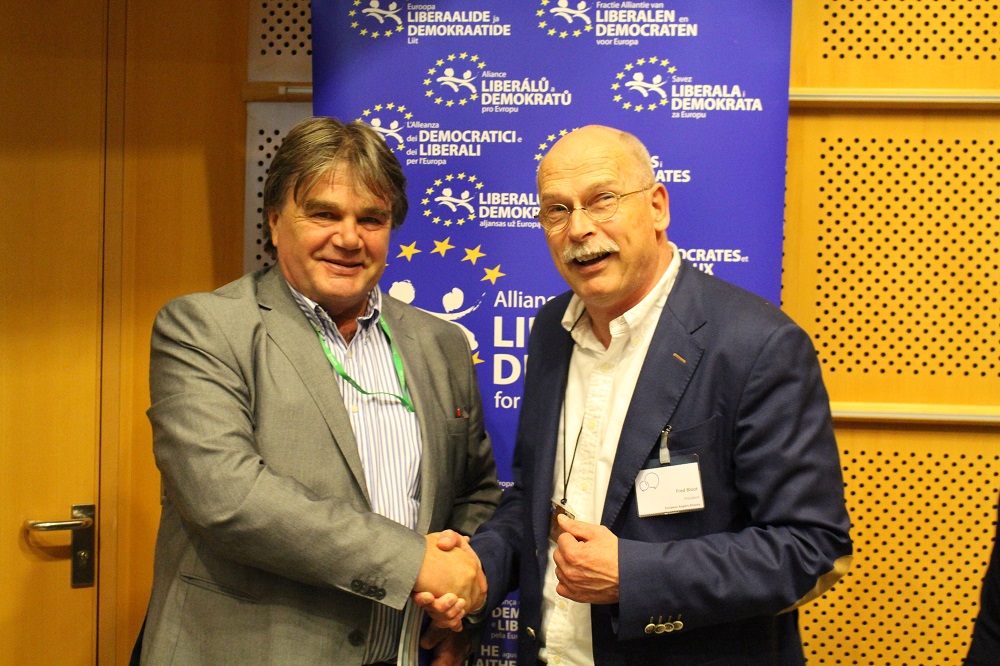
MEP I. Jakovcic and F. Bloot (European Anglers Alliance)
Conference: The Danube under threat
The Danube salmon - a barometer of the river basin's poor health
19 April 2016
European Parliament
MEP Norica Nicolai, the European Anglers Alliance (EAA) and the European Fishing Tackle Trade Association (EFTTA) are glad to invite you to the conference "The Danube under threat. The Danube salmon - a barometer of the river basin's poor health" organised by the European Parliament Forum on Recreational Fisheries and Aquatic Environment.
The event will take place on the 19th of April 2016 in the European Parliament from 12:30 to 15:00 - lunch will be provided.
You can download the draft programme here.
If you need a badge to enter in the European Parliament, please register here.
The Danube river is the longest river in Europe, linking the Alps to the Black Sea. It hosts some incredibly rich and fragile ecosystems that are currently facing many challenges (pollution, waste, floods, dams…). The Danube river is also an example of how the regional cooperation and conservation policies are the only solution to preserve Europe’s biodiversity.
The illustration of the Danube situation will be done through a focus on one of the most emblematic species of this river: the Danube salmon (hucho hucho) – an IUCN red list species.